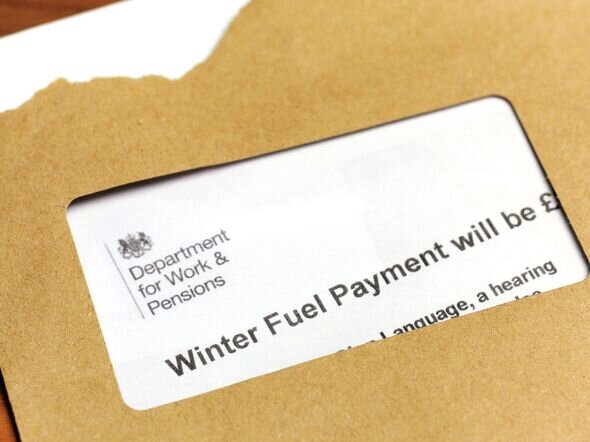Lets break it down for you...
Being a landlord comes with plenty of paperwork, especially when tax season rolls around. One bright spot? You can deduct property management fees from your rental income, which can make a real difference to your bottom line. UK landlords operating a property rental business can benefit from these deductions under HMRC rules.
After all, why pay more tax than you need to? Many landlords don’t claim all the management fees they’re entitled to, essentially leaving money on the table every tax year. These deductions are specifically relevant for those running a property rental business in the UK.

What exactly is a self assessment property management fees deduction?
When you pay someone to manage your rental property, those fees can be deducted from your rental income before calculating your tax. This means you pay tax on a smaller amount of income, which is completely legal and expected by HMRC.
Landlords can deduct allowable expenses, including property management fees, to reduce their property management fees tax liability.
Self assessment property management fees deduction simply refers to claiming these costs when you file your self assessment tax return. These deductions apply whether you use a full-service letting agent or pay for individual management services. Deductible property management services include a range of tasks performed by letting agents or property managers, such as tenant sourcing, rent collection, and property maintenance.
The basic rule is: if the fee is for the day-to-day running of your rental business, it’s usually deductible. These fees must be “wholly and exclusively” for rental purposes, HMRC requires that expenses be incurred wholly and exclusively for the rental business to qualify as deductible. I learned this the hard way after missing out on claiming nearly £2,000 in my first year as a landlord.
What property management fees can I claim on my tax return?
The good news is that most property management expenses are tax-deductible. This includes regular management fees that letting agents charge (typically 8-15% of your monthly rent) as well as tenant-finding fees. Key services provided by letting agents, such as tenant sourcing and tenant management, are often included in these fees and are generally tax deductible.
Inventory costs, check-in and check-out fees are all deductible expenses that many landlords forget about. Property inspection fees and costs for arranging repairs can be claimed too. Rent collection is a core part of property management services and is typically included in the fees charged by letting agents.
Routine maintenance, repair costs, and property maintenance are all considered allowable expenses when performed as part of property management services.
Professional property management companies may charge fixed fees or a percentage of rent, and professional property management can help ensure compliance and maximise deductions.

How much of my management fees can I deduct?
Generally, you can deduct 100% of your property management fees if they relate entirely to your rental business. If you only rented your property for part of the year, you can only claim for the period it was available for rent.
For properties that are partially let (like if you rent out just one room), you’ll need to divide the management fees proportionally. Remember, fees must be “wholly and exclusively” for rental purposes.
If your property manager also looks after your personal home, you can’t claim that part. HMRC is quite strict about this distinction, so it’s worth keeping clear records. Only costs incurred wholly and exclusively for the rental business are eligible for deduction.
When should I claim these deductions on my self assessment?
For most landlords using the standard method, you claim expenses when they’re incurred, not when you pay them. If you use the cash basis accounting method (available for landlords with income under £150,000), you claim when you actually pay the fees.
Don’t forget about timing. If your letting agent charges an upfront fee that covers several years of service, you may need to spread the deduction across those tax years.
Always include management fees in the tax year they relate to, even if you pay them early or late. This ensures your tax return accurately reflects your rental business activity. Accurate tax returns are essential for properly claiming property management deductions and supporting your claims if HMRC requests documentation.
What records do I need to keep for property management deductions?
HMRC requires you to keep records for at least five years after the January submission deadline for each tax year. It is important to maintain detailed records to support your claims. Save all invoices and receipts from your property management company or letting agent.
Bank statements showing payments are useful backup evidence for your claims. Your property management contract is also worth keeping, as it outlines what services you’re paying for.
If you use a digital system to track expenses, make sure it’s secure and you can access the information if needed. Many landlords find that taking photos of paper receipts provides extra peace of mind.

Common mistakes landlords make with management fee deductions
A frequent error is missing out on claiming all eligible fees because they’re bundled together on an invoice. Some landlords forget to claim one-off fees like tenant-finding charges, focusing only on regular monthly fees. These fees are tax deductible if they meet HMRC's criteria for allowable expenses.
Another mistake is claiming for services that aren’t tax-deductible, like major improvements to the property (these are capital expenses). Only allowable expenses, such as management fees and certain legal services related to your legal obligations as a landlord, are deductible. Don’t forget to check if your management fees include VAT.
If you’re not VAT-registered, the whole amount is deductible. Some landlords accidentally claim the same expense twice, once as a management fee and once under another category. Management fees are tax deductible when they are incurred for the purpose of meeting your legal obligations as a landlord.
Capital Gains Tax considerations for property management fees
When it comes to selling your rental property, Capital Gains Tax (CGT) is something every landlord should keep in mind. While property management fees are generally tax deductible against your rental income for income tax purposes, they don’t directly reduce your CGT bill when you sell. However, some allowable expenses related to the sale, such as legal fees or estate agent costs, can be used to reduce your taxable gain.
It’s important to note that property management fees paid during the ownership period are not usually considered allowable expenses for CGT purposes. Instead, they help reduce your taxable rental profits year by year. That said, keeping detailed records of all expenses incurred, including management fees, is still essential. This ensures you can clearly separate what’s been claimed for income tax and what might be relevant for CGT calculations, such as capital improvements or selling costs.
Understanding the distinction between income tax deductions and CGT allowable expenses can help you avoid mistakes and ensure you only pay the tax you owe. If you’re unsure about which expenses are tax deductible for CGT, it’s always wise to consult a property accountant before you sell.
Finance costs and property management: what landlords need to know
Finance costs, especially mortgage interest payments, are a major consideration for many landlords. Since April 2017, the rules around claiming mortgage interest as a tax deduction have changed. Now, instead of deducting the full amount of mortgage interest from your rental income, you receive a basic rate tax credit for these finance costs. This shift has affected the overall tax liability for many landlords and changed how rental profits are calculated.
Despite these changes, property management fees remain fully tax deductible against your rental income. This means you can still deduct the full amount of management fees from your rental profits before calculating your tax bill. However, with the new restrictions on finance costs, it’s more important than ever to keep your property management and finance costs clearly separated on your tax return.
To make sure you’re claiming the correct amounts for both finance costs and property management fees, consider working with a tax professional or property accountant. They can help you navigate the latest tax laws and ensure your tax return accurately reflects all allowable expenses for your rental business.

Joint ownership: how property management fees are handled
If you own a rental property with someone else, property management fees are typically split according to each owner’s share in the property. For tax purposes, each landlord must declare their share of the rental income and their share of any deductible expenses, including property management fees, on their individual tax return.
For example, if you and a partner each own 50% of a rental property, you would each claim 50% of the property management fees as a deductible expense. This proportional split ensures that each owner only claims the expenses they are entitled to, keeping everything fair and compliant with HMRC rules.
Accurate record-keeping is especially important for jointly owned properties. Make sure you keep clear records of all property management fees and how they are divided, so you can easily support your claims if HMRC ever asks for evidence.
Property allowance and property management fees
The property allowance is a useful tax break for landlords with modest rental income. It allows you to earn up to £1,000 in property income each year without paying tax or needing to declare expenses. However, if you claim the property allowance, you cannot also claim deductions for expenses like property management fees.
If your property income exceeds £1,000, you have a choice: either claim the property allowance or deduct your actual allowable expenses, including property management fees, on your tax return. For many landlords with higher expenses, claiming actual costs will result in a lower tax bill.
To make the most of your tax deductions, review your rental income and expenses each year. If you’re unsure which option is best for your situation, a property accountant can help you decide whether to claim the property allowance or deduct your property management fees and other allowable expenses.
How do these deductions affect your overall tax situation?
Property management fees directly reduce your taxable rental profit, which can lower your income tax bill. Deducting property management fees reduces your taxable profit and taxable income, resulting in significant tax benefits and tax relief for landlords.
These deductions become even more valuable with the restrictions on mortgage interest relief. Landlords should also consider other finance costs, utility bills, and council tax as part of their tax deductible expenses. For jointly owned properties, management fee deductions are typically split according to your ownership shares.
Remember that reducing your rental income through legitimate deductions might also keep you in a lower tax band. Accurately reporting your total rental income and claiming property management costs is essential for calculating rental income tax and maximising tax relief. This can have significant benefits for your overall tax position.
Ongoing property management provided by property management companies is a key part of running a property business, and landlords should claim property management fees and other allowable expenses to optimise their tax position.
Final Thoughts
Tracking all these deductions can feel overwhelming, but it doesn't have to be. Good record-keeping throughout the year makes tax time much easier and can save hours of stress when your self assessment deadline approaches.
Consider using a dedicated tax app to keep everything organised. Pie is the UK's first personal tax app designed specifically for working individuals like landlords, offering integrated bookkeeping and real-time tax figures.
Unlike traditional tax solutions, Pie gives you a clear picture of your tax situation year-round, not just at tax time. Why not make next tax season easier? Take control of your property tax deductions and keep more of your hard-earned rental income.

Quick and Easy Guide to Reconciling Property Income and Expenses in the Pie App
Follow these steps to get started:
Once you’ve created an income source, you can proceed to the bookkeeping section of the app on your navigation bar. Swipe right on any eligible transaction to add it as an Income & expense you want to declare on your tax return, moving it to the 'income' & ‘expense’ tab.Step 1

After adding all the information, you can view your real-time figures on the homepage of the Pie Tax App.Step 2












